Nueva Cádiz is considered the first city of Venezuela and of all Latin America. Its production and main interest on the part of the colonizers was the wide sustenance of pearls and oysters that were in the vicinity of the place. In a very short time, this island was practically exploited and the settlers were gradually leaving. Nowadays it is just a place of arrival for some fishermen who park their boats on the island and then continue their journey, but what really happened to this island called the city?
First settlements of the Spaniards on firm land and the island of America in Venezuela.
Of course, speaking of history makes us travel to the arrival of Christopher Columbus, the indigenous people he called the Indians and the reality, in which the continent as we know today as South America was. To begin to detail the first settlements of the Spaniards in the country, it is important to note that they did not reach the mainland as such, but rather the neighbouring islands from which, they were able to exploit large quantities of wealth such as gold, pearls and salt.
From the arrival of Christopher Columbus in 1492 until the beginning of 1520, the Spaniards did not see the fruit of their efforts in terms of the exploitation of precious minerals (mainly gold) which hung from the clothes of the indigenous people of the area. The people were exploited for pearl fishing and gold mining in the river basins of the newly occupied islands, currently known as Santo Domingo on the Dominican Republic and Haiti, Columbus called these territories Hispaniola. The intention was to follow the trade of all kinds of resources that were exploited between the conquerors and Castile in Spain.
With the discovery of pearls of the island of Cubagua, the colonizers settled there to take advantage of the supply of pearls and with the help of Lucayan people, African and Spanish labourers to maintain a stable economy within their own interests, however, this did not last long.
Foundation of Nueva Cádiz on the island of Cubagua
Columbus’s encounter of these islands on his third trip caused a lot of astonishment. At that time, he knew he had to do something to be able to subtract the pearls of these lagoons. On his trip, he discovered the island of Cubagua, Margarita and Coche, which he called Islands of Pearls and later the land of grace.
For the conquerors of this era, it was necessary to have a special document that would confirm this territory as a city. Under the supervision of Christopher Columbus himself and under the mandate of the Royal Audience of Santo Domingo, New Cadiz was founded in 1521. From that moment on, they could supply these infertile lands with food and fresh water so that fishing for pearls and oysters could continue.
As mentioned, this did not last long, because the indigenous people were deserting or getting sick from diseases that the Spaniards themselves were infecting them. The oysters also disappeared and it was then that the extinction of the first city of Venezuela began.
Of course, details are missing in the story of the origin of Nueva Cádiz. We can begin by mentioning that before Columbus himself touched the lands of Cubagua, as confirmed in documents by Fray Bartolomé de las Casas, many sailors and adventurers searched for pearls.
After mentioned everything in relation to its foundation, the indigenous uprising of 1520 left the island of Cubagua almost completely deserted. In 1526, Villa acquired the name Villa de Santiago de Cubagua, but apparently, it never had any significance.
At the end of 1528, Carlos V himself granted it the status of a city, calling it Nueva Cádiz. The town began being supplied with fresh water from the city we know today as Cumaná.
Among the insurrection of the Indians and the shortage of the oysters, another factor that influenced the desertion of the island was a tsunami that hit the city in the year 1541. Nevertheless, two years later a hurricane came to finish the work. After these fatal natural disasters, the oysters remained shattered and without indigenous labour, there was no other way but to leave the city.
Pirates, monarchies and Spanish colonizers, took much of the lands of Nueva Cádiz. They came only to steal and capture the indigenous peoples and then sell them as slaves, this was practically the routine of the island of Cubagua.
In fact, many of the Indigenous people were controlled by the missionaries were in charge of preaching the gospel. Spanish sailors arrived on the island and gained their trust by paying false tributes and creating an atmosphere of harmony. Inviting them with permission from the missionaries to eat on the ships, taking into captivity by surrounding and threatening with death. Many indigenous slaves died defending themselves or being slaves of other colonies.
By then the pearl industry was based on the labour of both indigenous and African slaves, engaged in diving to find the precious pearls. The shortage of fresh water was one of the main problems and many of these slaves died in the attempt to acquire the pearls that the colonizers forced them to find.
An approximate of 11 tons of pearls was being extracted in Nueva Cádiz while the city was “alive”. After the aforementioned events, the oysters, the population and even the structures were abandoned leaving the island a memory of something that could be more than just a source of colonial exploitation and the bloodshed of many innocent natives who gave their lives to make the settlers richer.
References
Photos: @highonthehog
Images: sources linked below
Floyd, Troy, The Columbus Dynasty in the Caribbean, 1492-1526. Albuquerque: University of New Mexico Press, pp. 205, 208, 1973
Romero, Aldemaro, Death and Taxes: the Case of the Depletion of Pearl Oyster Beds in Sixteenth-Century Venezuela, Conservation Biology, 2003
Orche, Enrique, Exploitation of pearl fisheries in the Spanish American colonies. De Re Metallica, 13: 19–33, 2009
Click on the coin to join our Discord Chat

Vote @adsactly-witness for Steem witness!
Witness proposal is here:
Witness Proposal
Witness Proposal Update
Go To Steem Witness Page
In the bottom of the page type: adsactly-witness and press vote.

Use small letters and no "@" sign. Or, click here to vote directly!
Thank you!
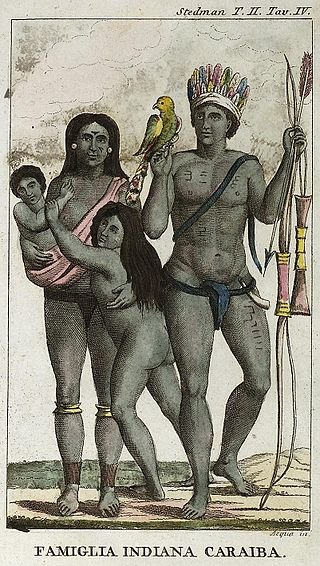
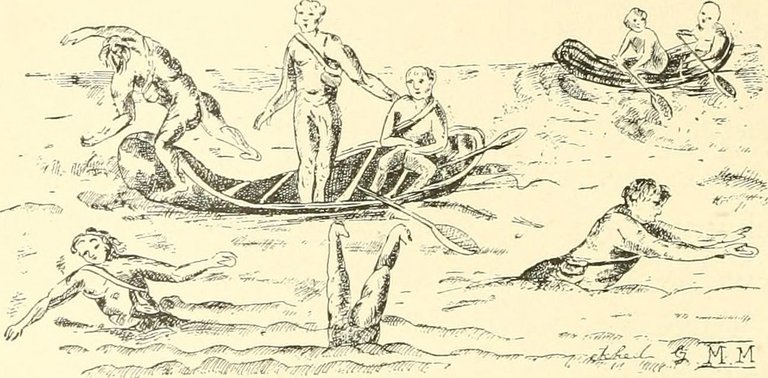
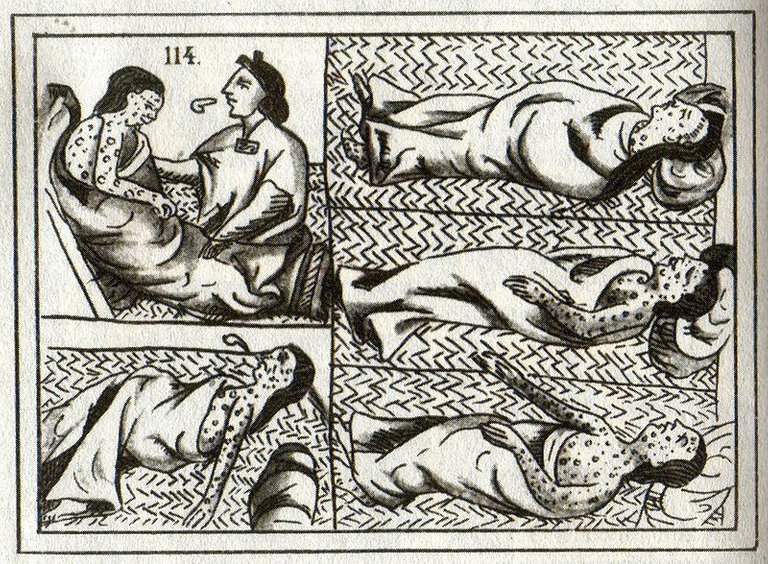
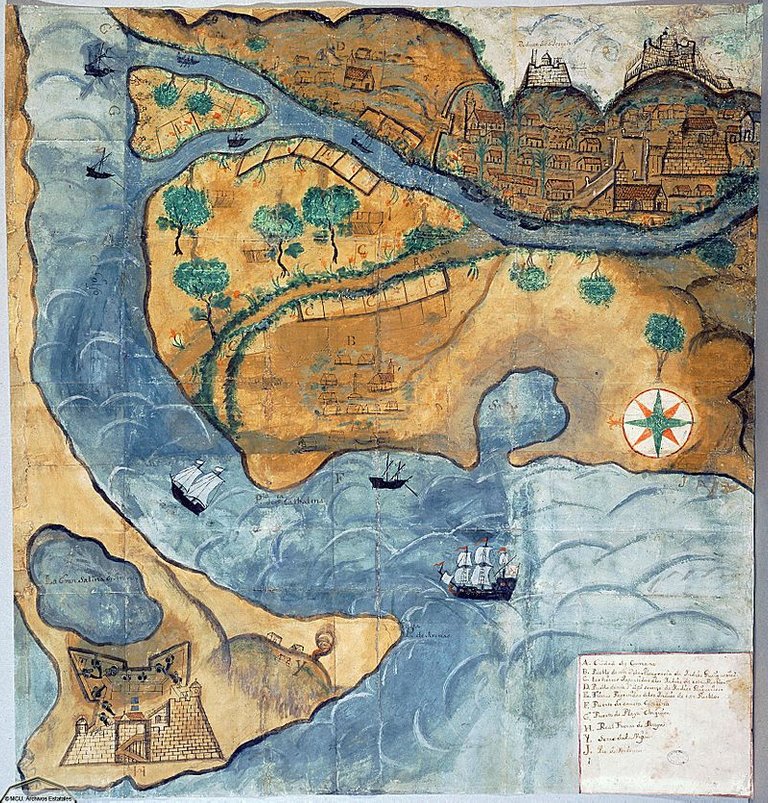
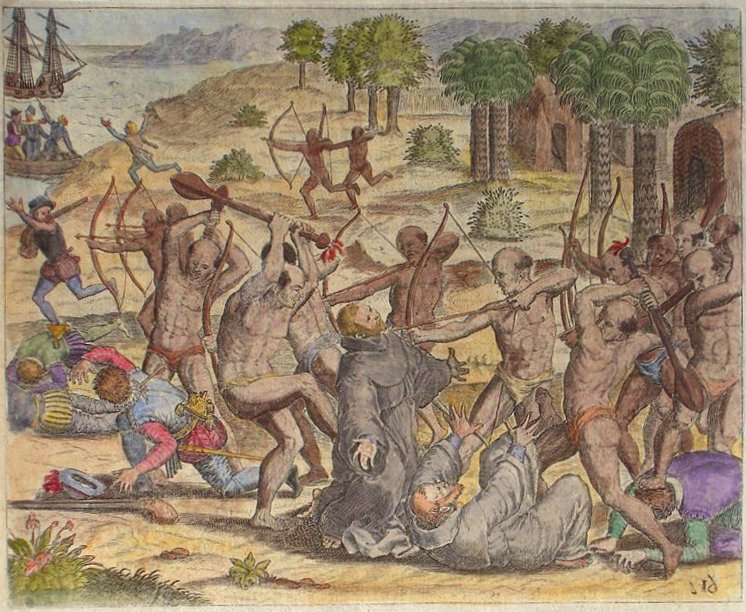



.jpg)
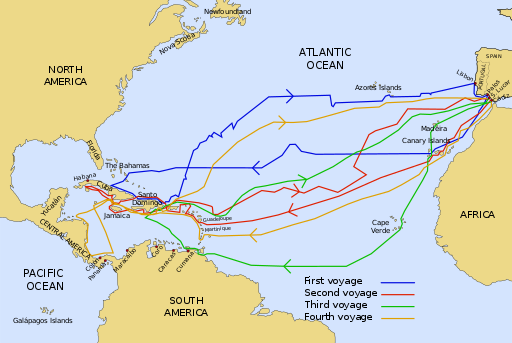
.jpg)
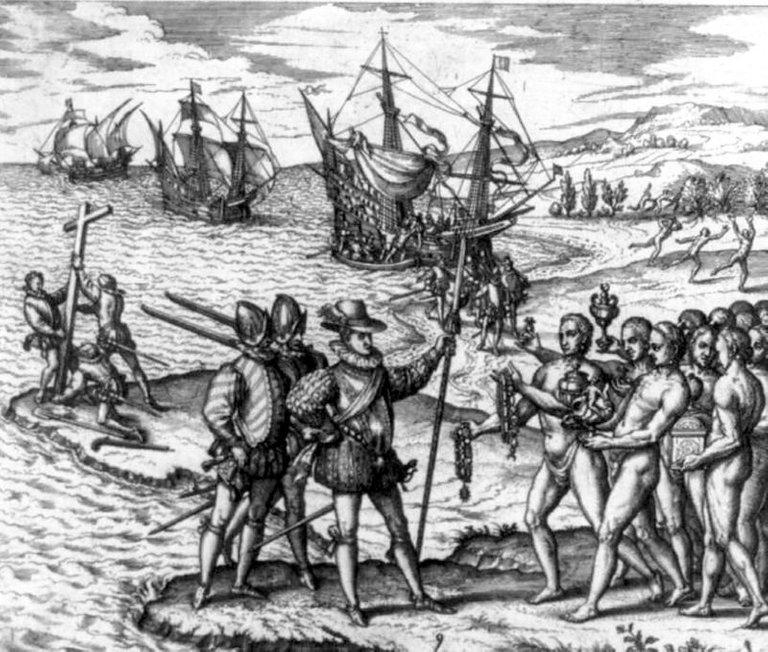
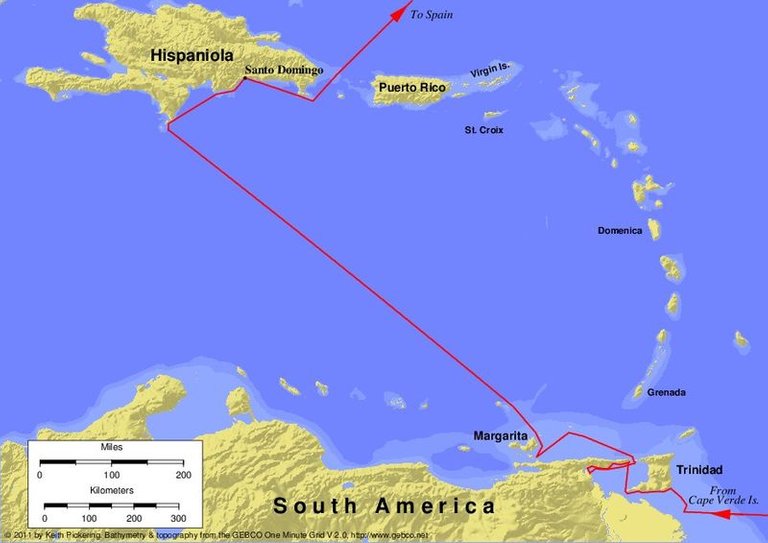
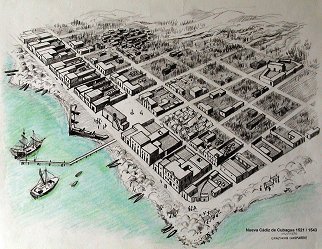
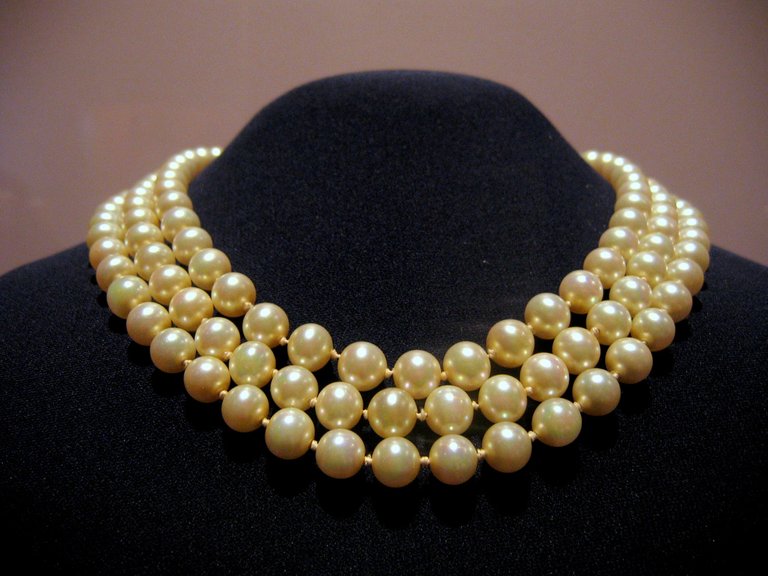
Complete exploitation. How pity that in race to acquire more and more wealth humans never value the presence of other people.and completelly exploited them..and treated them as slave and animal. It happens with Venezuela islands and similar things even happened in India too..where the clonoisers keep exploting the place and people till they exploited the entire nation it took them 200+ years to exploit the indian people.
Nueva cadiz rich in pearl and oyster is now only a name in books of history and interest of talk for people around latin America. Ruthlesly exploited bybthe spaniards and othe colonizers only to acquire more and more....few of the history events give us very bad picture.
Posted using Partiko Android
Yes well , as we can see this activity is still practised in different places around the globe. From what I saw in Venezuela, various forms of exploitation and pressure are still alive. no words.
Yes i know about it..yesterday i saw a post about how people started to leave the home and country because of unstable government policies and inefficient leaders. Pretty sad that many a times a vote can make so much difference and bring inefficient people to power.
Few hour ago i was reading some post of communitycoin drafted by olawalium and he wrote to about the worst scenario of Nigeria and how goevrnment people are screwing them. Pretty sad to see so much intolerance and unstability everywhere
Posted using Partiko Android
I am from Venezuela and very specifically I live in a state that is in front of what was Cubagua. In fact, in Cumaná, the city where I live, there were plans to build a structure that would bring water to Nueva Cadiz when it existed, because water was always a problem. The exodus of its inhabitants was slow, they left little by little, because of the water problem. Although it is believed that the income that Spain received from the pearl fishery was astronomical, they could not get the workers or slaves to stay because the climate was infamous. The ruins of the first Venezuelan and South American city can still be seen today. I have even heard that there are services of walks so that they know the zone. Thank you for telling the story of a part of my country, important for the memory of Venezuela and Latin America. Greetings
Ah! Av very informative historical narrative! Salute to the writer. It is a history of adventure, looting, exploitation and imperialism. Columbus was in search of the sea route to India but he reached to these islands. He could not understand that he was not in India, so he named these people as Indians.
Spanish and Portuguese sailors and their royal patrons looted the indigenous people and made them slaves in their own country. Not only they exploited them but also the hitherto unknown diseases also came with them which killed millions of natives there.
This robbery has not ended yet. People in the Latin American countries are still suffering from exploitation and mismanagement. Their leaders tried to rule them. Imperialism is still proliferating all over the world. It has come in the form of economic slavery. Will our world be a nice and just place for everyone or not?
I am totally appreciate this post.I think your post is lot of better.your post is also educated..At first,,you discuss about history.History is the real part of our education..we always learn from our history..Then,, Travel is the another part of our life..we learn a lot when we travel different time.. Travel also refresh our mind.. Finally,,When I read your post I lean lot...
All the best..
👍👍👍
Thank you, all the best to you too.
great post fam, I'm from Trinidad :) our island was inhabited by the Caribs and Arawaks.
Thanks, greetings !
Your writing is very inspirational.
As people we must know the history of our ancestors.
Their struggle, the journey of life which dares to follow us.
Your interest in history has fascinated me.
All of us like you should be researching history and known.
History is the part and parcel of our education.
Thank you very much for this information.
Steem's wikkipedia haha!
if it's a compliment than thanks ;)
we love @adsactly all the way. what a beautiful country Venezuela is.
Thank you. It is rich in resources and blessed with beautiful landscapes.
gr8 one some unknow fact about history................
cheers !
@adsactly Thanks to God that we are not any more a colony in hands of Spain. The native really defended what belonged to them, they were not savage or criminals etc they just defended their heritage. But still, how much they fight for their lands they were swept, leaving the history to be told with many errors.
Thanks for your contribution.